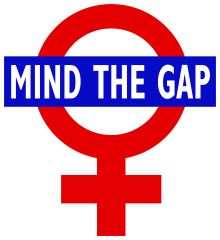Training modules/dashboard/slides/12218-identifying-content-gaps-for-editathons
Identifying content gaps for editathons[edit]

Many editing events want to create new content that helps fill gaps on Wikipedia. Although writing new content increases the representation of diversity on Wikipedia, new contributors can often struggle with a) finding a suitably “notable” topic, b) creating an article from scratch that is sufficiently “wikified” to pass through initial scrutiny from other editors, or c) figuring out the correct structure for organizing the new content. We recommend that less-experienced contributors to Wikimedia projects not encourage event participants to create new articles.
To help simplify the articles creation process, screen topics ahead of time and provide at least a handful of references for each topic to save research time among participants. To identify a topic that is likely appropriate for writing an article for in an Editathon, consider the following:
- That the article will meet the General Notabilty Guidelines: that the topic has lasting interest and there is significant coverage in reliable secondary sources (newspapers, magazines, books, academic journal articles) or tertiary sources (encyclopedias, etc). For editing events, it is a good practice to find at least 2-3 sources that editors can use to establish notability.
- That the article can be reasonably expanded through additional research using simple digital search techniques. By finding topics that are easily searchable, both Wikipedians and the new editors can either expand the articles or verify that the topic is actually notable.
- That the source materials for the topic are easy to read by your editing-event audience and cover various aspects of the topic. This ensures that the inexperienced editors can create content during the event about the topic that is sufficiently broad to make the article useful. Try to avoid topics that will primarily be covered in expert documentation if engaging non-expert audiences.
Make sure to create redlinks for the appropriate name for the article in the on-wiki event page. Also, its is a good idea to include external links to existing digital sources about the topic or work with librarians to pull off-wiki materials.
